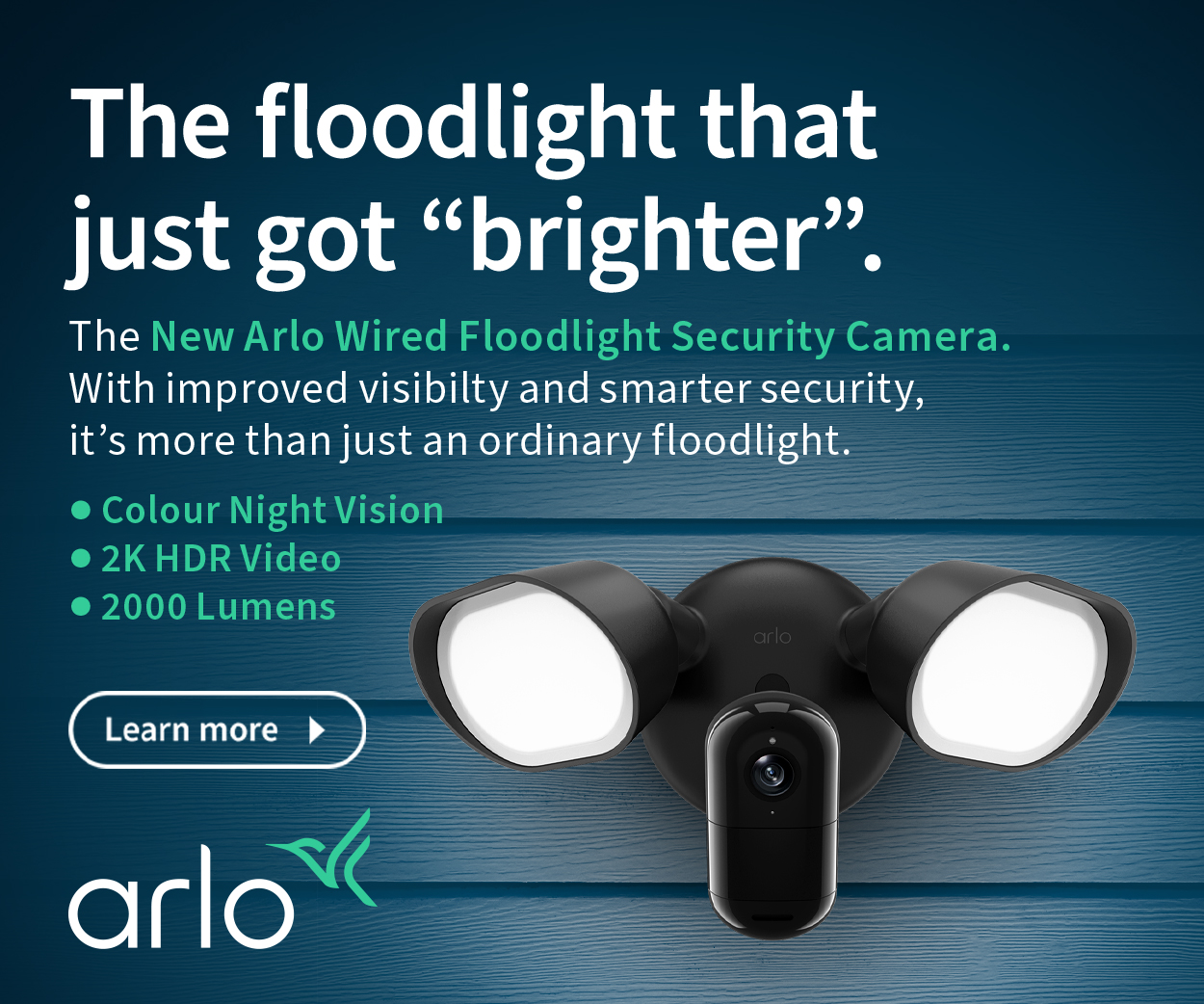Motorola Razr 40 Ultra 2023 – it is finally flipping right (smartphone review)
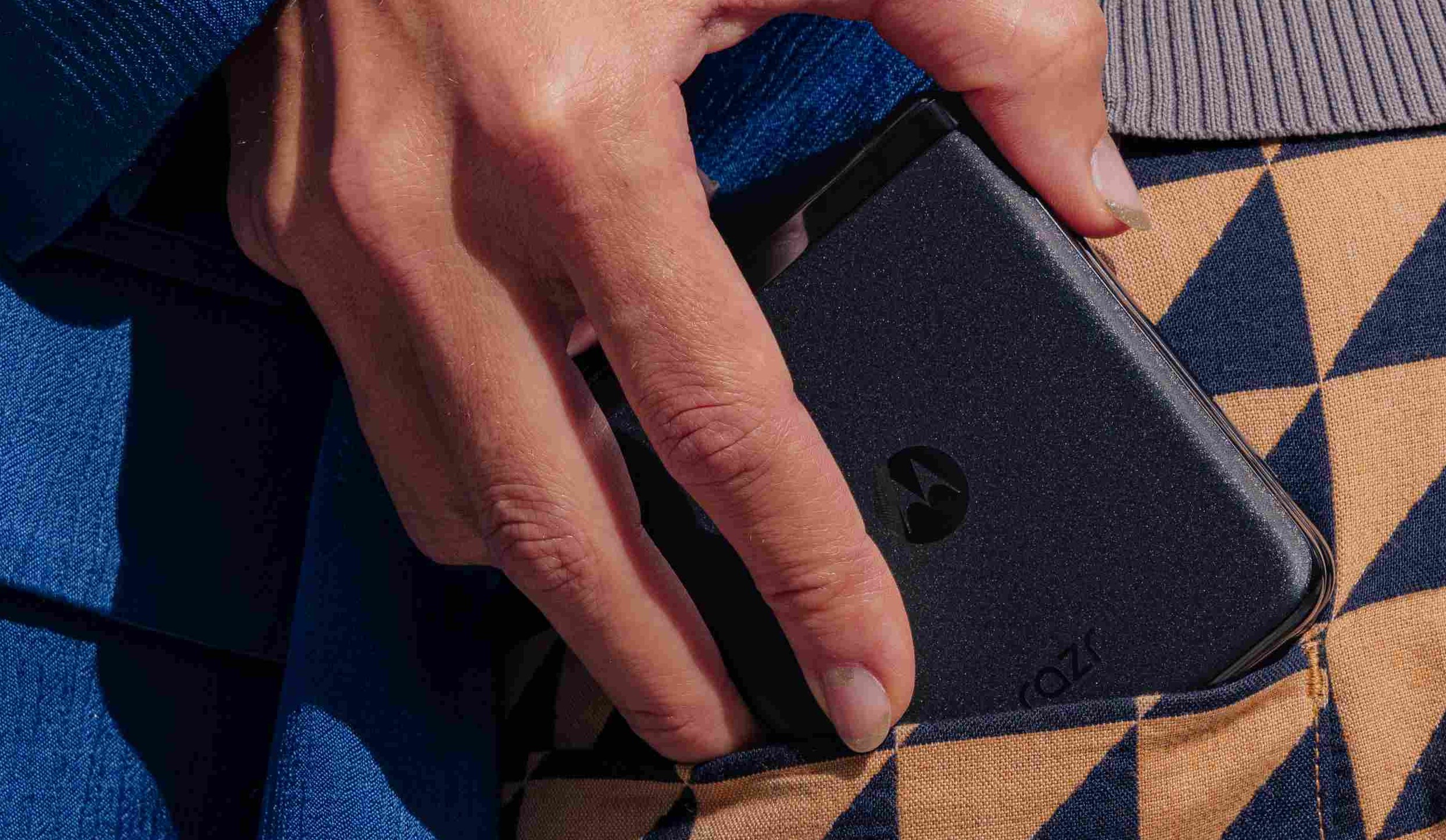
The Motorola Razr 40 Ultra 2023 has, after three iterations – Razr 2019, Razr 5G (2020), and Razr 2022, finally got it right. The Motorola Razr 40 Ultra is pretty close to Nirvana as far as the current crop of flip phones goes.
It has been neck and neck competition with the Samsung Flip (four iterations). Lately, OPPO Find N2 (two iterations) has driven this segment. Motorola is to be congratulated for being agile enough to edge ahead. Not to rain on its parade, but shortly, Samsung’s Flip 5 will launch, and the competition will start again.
The Motorola Razr 40 Ultra excels because it has addressed some of the shortcomings of all flips.
- There is no visible crease – OPPO managed this too, but Samsung was too evident. The hinge now allows for almost infinite adjustment and total closure.
- It now has the largest external screen – a 3.6” 1:1, 144Hz, AMOOLED (pOLED) – much more useful than a clock or notifications. It is also an excellent true colour viewfinder. OPPO is the runner-up, and Samsung has a minimal external screen.
- The power equation is now right. The Qualcomm SD8+ Gen 1 processor is flagship class, and Qi charging is nice.
- The camera setup is fine for happy snappers but not quite up to OPPO standards.


Of course, there are inherent issues with all flips.
- All internal screens are soft –around 2 out of 10 on the Mohs hardness scale (a fingernail is 2.5).
- Screens are generally 22:9 (tall and thin) and up to 120Hz. Motorola has a 165Hz internal screen which means little but gives it bragging rights.
- IP ratings are generally lower, although Samsung Flip4 is IPX8.
- Batteries have to be smaller.
In reality, more advanced glass slabs deliver much more without compromise – better processors, screens, Ram, storage, sound, camera and IP. So buying a Flip is a choice, and as long as you know, we have done our job.
Note there is a lower cost $999 Razr 40
We will review that shortly, but it has (Motorola Razr 40 Ultra in brackets)
- 144Hz internal screen (165Hz)
- 1.5” external screen (3.6”)
- SD7 Gen 1 (SD8+ Gen 1)
- 64MP camera binned to 12.5MP (12MP not binned)
- Single-channel GPS (dual)
- 4200mAh battery (3800) and 68W (30W)
Australian Review: Motorola Razr 40 Ultra, 8/256GB single sim/e-sim, Model XT2321-1
| Website | Product Page |
| Price | $1499 |
| Colours | Infinite Black, Glacier Blue, and Viva Magenta |
| From | Lenovo Online, JB Hi-Fi and other approved retailers * |
| Warranty | 12-months ACL |
| Made in | China |
| Company | Owned by Lenovo (Est 1984) – a multinational technology company with its primary operational headquarters in Beijing and Morrisville, North Carolina. It is the world’s largest PC maker, and it purchased Motorola Mobility from Google in 2014. Most of Lenovo’s smartphone business is now under the Motorola brand, with grand plans to become a ‘top five’ smartphone maker. |
| More | Other CyberShack Motorola news and reviews |
Deep-Dive review format
It is now in two parts – a summary (the first) and a separate 300+ line database-driven spec, including over 70 tests to back up the findings. It also helps us compare different phones and features.
We use Fail (below expectations), Pass (meets expectations) and Exceed (surpasses expectations or is the class leader) against many of the items below. We occasionally give a Pass(able) rating that is not as good as it should be and a Pass ‘+’ rating to show it is good but does not quite make it to Exceed. You can click on most images for an enlargement.
* Grey market – no Australian warranty, and 5G won’t work
We strongly advise you to buy a genuine model with Australian firmware. It is easy to identify the Australian version – under Settings, About Phone, and Regulatory Labels, there is an Australian R-NZ C-tick mark. There is also an R-NZ C-Tick on the box. They use unique Australian 5G sub-6Ghz and 5G low-band frequencies, requiring local activation first. Read Don’t buy a grey market phone (guide).
First Impression – More modern, slimmer and love the external screen – Exceed
If you like Flips (and have small but deep pockets😁), this is the nicest looking of the three. It is slim, has a very usable external screen, an almost visibly imperceptible crease, bright/colourful internal screen and what is not to like?
Sure, the external screen is a fingerprint magnet, but if that is all to complain about – you are hard to satisfy.
Motorola defined the flip category back in 2004; Samsung spent way too much money popularising it; OPPO beat Samsung, and now let’s see how Sammy responds with the 2023 Flip 5.
Let’s put it another way. OPPO’s Find N2 Flip (91/100) was tempting and beat the hell out of Samsung Flip4 (83/100). The Motorola Razr 40 Ultra ticks all the boxes and is a phone I could use and like, except I need things only a high-end glass slab provides.
Internal Screen – Exceed
The internal touch screen is 2640 x 1080, 413ppi, 22:9, 1.07B colours, 165Hz foldable LPTO AMOLED (pOLED) – top drawer stuff.
It claims a peak brightness of 1400 nits, but that relates to reproducing HDR10+ video content (Dolby Vision shows in HDR10) in 2% of the screen. In reality, this is about 1000nits maximum typical brightness and tests show that it reaches 980 – pretty close.
It is a 10-bit/1.07B colour screen with 120% of the DCI-P3 movie colour space coverage. We could not test peak brightness as we could not get any HDR10+ content to test that level but be assured that movies look great.
While it can be 165Hz (adaptive from 1-165Hz) in gaming mode, we generally found it between 60/90/120Hz.
Pulse Width Modulation (PWM) was evident around 100Hz (flicker) and is most evident at about 25% brightness. There is a flicker reduction switch, but we are unsure if or how it works.
External Screen – Exceed
The external touch screen is currently the largest of any Flip at 3.6” and is very useable. In part because some Apps have been optimised for the Full View 1:1 but mainly because they are large enough to be useful.
It is 1066 x 1056, 1:1, 144Hz, 1100nits, 1.07B colours, 100% DCI-P3 AMOLED (pOLED) – excellent. Tests show this is peak brightness, and it delivers around 850nits at a Delta E of 3 (<4 is great) for a good, readable daylight display. Gorilla Glass Victus protects it.
More importantly, whatever you are doing on the external screen seamlessly transfers on opening to the internal screen.
Screen Summary: The best internal and the biggest external screens.
Processor – Exceed
The Qualcomm SD8+ Gen 1 is a flagship-class processor and is right for this device. It is also in Motorola’s Edge 30 Pro, Edge 30 Ultra, ThinkPhone, and Razr 2022, and the Samsung Flip4 2022.
It has the X65 4/5G modem for maximum signal strength, tonnes of AI for photo processing, and a GPU with gaming chops.
On that point, while the screen is capable of 165Hz, the rigours of gaming mean that the screen could be easily damaged. OpenCL is 6004, and Vulkan is 7012 – very fast.
It has 8GB LPDDRX5 – the fastest. This is plenty, but Motorola also has a virtual RAM Boost to 10GB that uses part of the SSD. It is similar to Windows swap space.
It has 256GB UFS 3.1 (211GB free). There is no micro-SD. You can mount an external flash drive or SSD, but it only has a USB-C 2.0 interface limiting the speed to a paltry half-duplex 60MBps, which is not for videographers and vloggers. The Razr 2022 had USB-C 3.1 (5Gbps/625MBps), and the SoC supports this, so we are at a loss why it only comes with USB-2.0.
Disk transfer rates of 1160/570Mbps are similar to the Razr 2022, so it handles 4K@60fps video frame rates.
Throttling – Fail
It throttles 43% over 15 minutes and never recovers. Maximum GIPS is 354,135, but it drops to 194,065 and stays there. Typical users won’t notice, but gamers and heavy users would be most affected.
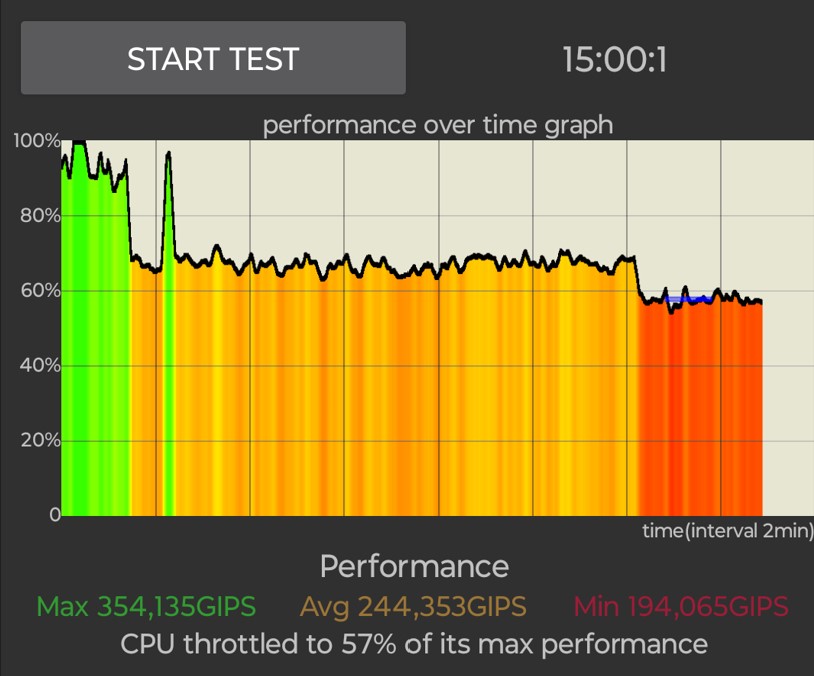
Ready For – Motorola’s screen mirror and Android desktop – Fail and Pass
Motorola Ready For is great. It is like Samsung DeX (Desktop Experience) and allows you to cast your phone screen (mirror) and use it as a mouse/trackpad, webcam, and Android desktop. It is a real benefit for road warriors.
It fails because the USB-C 2.0 interface does not support audio/video streams (Alt DP found in USB-C 3.1 like the Razr 2022) over a USB-C to HDMI cable. That means you cannot cable connect to a dumb monitor or TV.
It is a Pass because it will connect over Wi-Fi to a Windows (Ready For App needs to be installed) or a TV that BOTH has Miracast and is connected to the same home network Wi-Fi (not via Ethernet).
The problems include:
- Less recent TVs may not have Miracast.
- Many new Android TVs only support Google Chromecast.
- If the Wi-Fi signal is weak, mirrored content can be choppy.
Comms – Pass+
Wi-Fi 6E AXE works well if you have a 6E router. It has a powerful signal achieving 2401Mbps full-duplex (maximum) near the router and 2161Mbps out to 10m. If you have a Wi-Fi 5 or 6 router, it is equally strong on 5Ghz achieving 866Mbps (maximum) and 1200Mbps, respectively.
We have already bemoaned the choice of USB-C 2.0. It will likely not impact most users besides cabled Ready For and external SSD data transfer rates.
Bluetooth is 5.3 and supports SBC, AAC, apt X, aptX HD, aptX TWS, aptX Adaptive, LDAC, LHDCV1, LHDCV2 and LHDCV3 at up to 24-bit/96000Hz – perfect.
GPS is dual-band with an accuracy of <3m, which is excellent for fast in-car navigation.
4/5G – Pass+
It almost rated Exceed with nine antennas, but the maximum signal strength was slightly below the best performers. It gets a City, suburbs and regional city use tick – it may not quite have the legs for remote use. It covers all Australian (and most overseas) 4G and 5G sub 6Ghz bands – a world phone.
I like the dual ring tones (one each for the SIM and e-SIM). Calls are clear and loud.
Battery – Pass+
It has a 3800mAh battery – smaller than the current crop of 5000mAh – but that is to fit a two-part battery inside. It comes with a 33W charger and, oddly, a USB-A to USB-C 3W cable. It typically charges at 9V/3A/27W to start and then drops to 9V/2A/18W.
It also supports 5W Qi wireless charge 5V/1A/5W), and while slower than 10 to 15W Qi, it does a safe job in 5 hours (overnight).
Battery Tests
- Video Loop (50% brightness/sound/aeroplane mode): 24 hours – spectacular!
- PC Mark 3.0 Office use battery test: 14 hours 7 minutes
- Accubattery: 17 hours 38 minutes maximum and 4 hours 57 minutes under 100% load
- GFX Bench Manhattan (game): Would not run
- GFX T-Rex (game): 268.3 minutes (4.47 hours) and 6717 frames
- Charge 33W: 1 hour 4 minutes
- Qi charge: about 5 hours
- Drain 100% load: 4 hours
- Drain screen on idle: 250-300mA
- Drain 100% 1100-1500mA
Typical users will make it easily through a 24-hour day or more. Heavy users will need to recharge daily.
Sound – Dolby Atmos downmix to two speakers – Pass
It has a forward/up-firing earpiece and a bottom-down-firing speaker. It uses the Dolby Atmos EQ (most will leave it in smart mode).
The maximum volume is 82dB, and the earpiece is louder than the average.
But it still has the odd sound signature of the Razr 2022. It is mostly Bright Vocal (bass recessed, mid/treble boosted), but the unexplained dip at 500Hz and the somewhat choppy top-end frequency response could use work. At first, we suspected Moto’s Crystal Talk AI was influencing the sound quality, but it was similar with that feature off. In short fine – for voice but meh for music.

The sound stage has a bias to the bottom speaker. It is only as wide as the phone. DA content does not widen the sound stage but adds some middle screen height. Left and right separation is adequate.
I can understand this signature as the phone can be used in landscape, portrait, L-Shape etc.
Build – Pass+
This is a very well-made device. Alloy 7000 frame, stainless steel hinge, no gap, minimal crease, Gorilla Glass Victus front and back or Vegan leather back.
GGV colours are Glacier Blue and Infinite Black, and Vegan Leather is Pantone Viva Magenta.
What is vegan leather? It’s a fancy, woke name for polyurethane, a polymer that can be made to look and feel like faux leather (pLeather or PU and PVC). Its durability is far less than genuine leather – two to five years – and its porous surface attracts and absorbs grease and dust more easily. You can gently clean it with mild soap and water. Regardless we recommend a clear protective case.
The critical difference between the Razr 2022 is the new teardrop hinge that allows the Flip to fold flat and minimise the visible internal screen crease. It is almost infinitely adjustable from a tent, L-shape, and viewfinder to flat.
Size-wise, it is Open: 73.95 x 170.83 x 6.99mm and Closed: 73.95 x 88.42 x 15.1mm x 185/189g. It is very pocketable and lighter than the Razr 2022 and Samsung Flip4.
Warranty is 24 months ACL and will receive three major Android OS upgrades and four years of bi-monthly security updates (2+3+4). It is not quite as generous as Samsung’s 2+4+4.
OS – Android 13 – Pass+
Motorola uses pure Android overlaid with its My UX, which adds considerable value to Android. A list of these is in the Android segment of the table at the end. It also means it is clean apart from Facebook, TikTok and Bookings.com (all uninstallable).
Security is via a fingerprint sensor on the power button, and it supports 2D face recognition. Moto KeySafe (not tested) makes this a safe Android phone.
Missing – not much
- USB-C 3.1 Gen 1 – we have said enough about that. It is only a deal breaker if you need it for external flash/SSD and cabled Ready For screen mirror.
- 3.5mm port – use BT for a much better experience
- Micro-SD – not expected, but USB-C 3.1 would have been nice
Motorola Razr 40 Ultra camera
The Razr 2022 had a 50MP Omnivision sensor that bins to 12.5MP. Binning uses AI to take a bracket of images and combine them with AI to give a better-finished shot. It also has a 13MP Hynix HI336 ultra-wide/macro (same as the Motorola Razr 40 Ultra).
This has a 12MP Sony IMX563 OIS primary sensor and the Hynix 13MP ultra-wide/macro. As it uses the same Qualcomm SoC and AI, it matches the Razr 2022 for image quality.
The 12MP has a brighter f/1.4 (f/1.8) but smaller 1.4um pixels (2um binned).
Both use the same selfie 32MP (bins to 8MP) Omnivision OV32C40 sensor.
This is a point-and-shoot camera that will produce decent daylight and low-light shots. It won’t win awards and is not a flagship camera. My only issue is that the 8X digital zoom is quite limiting.
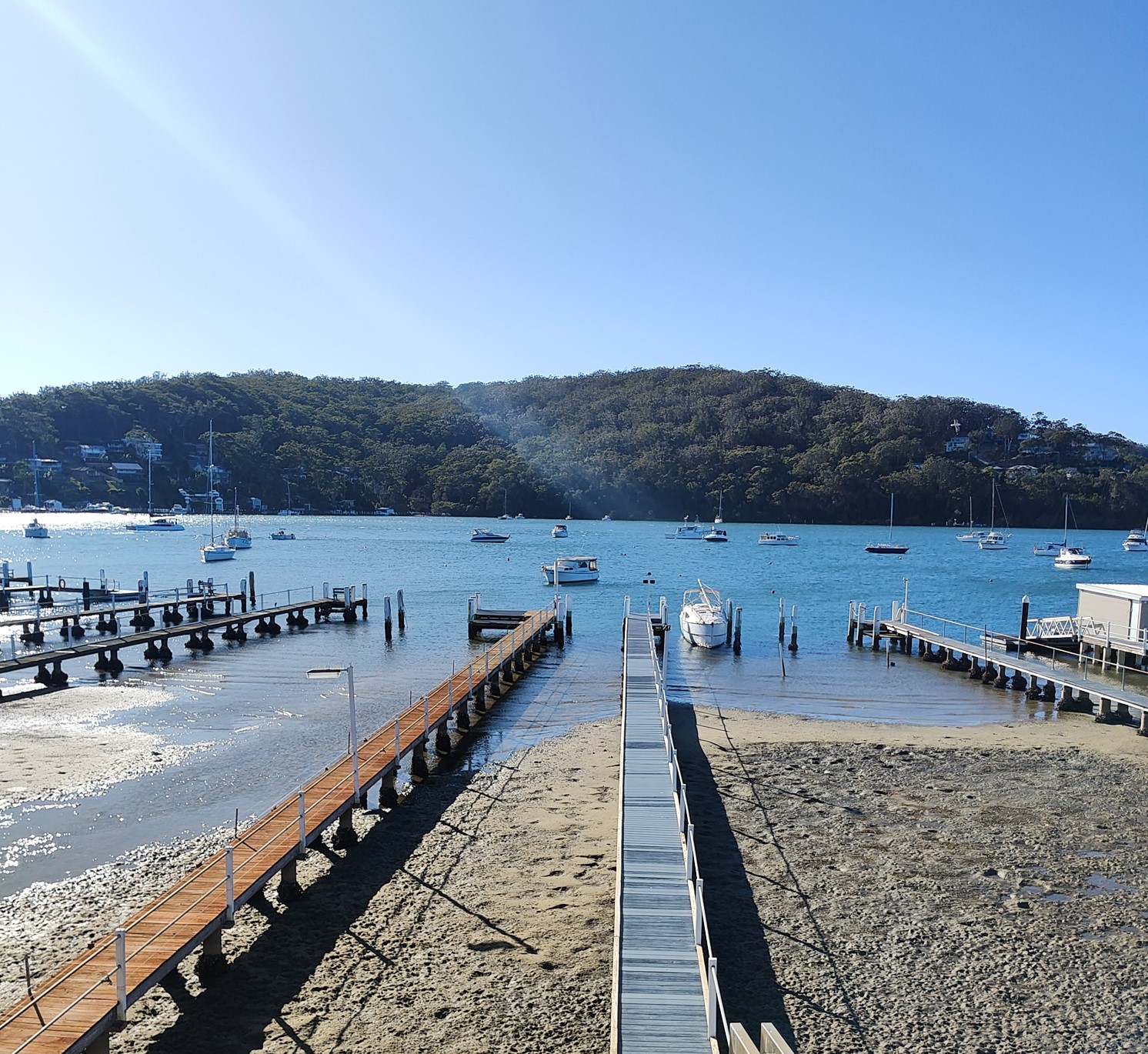
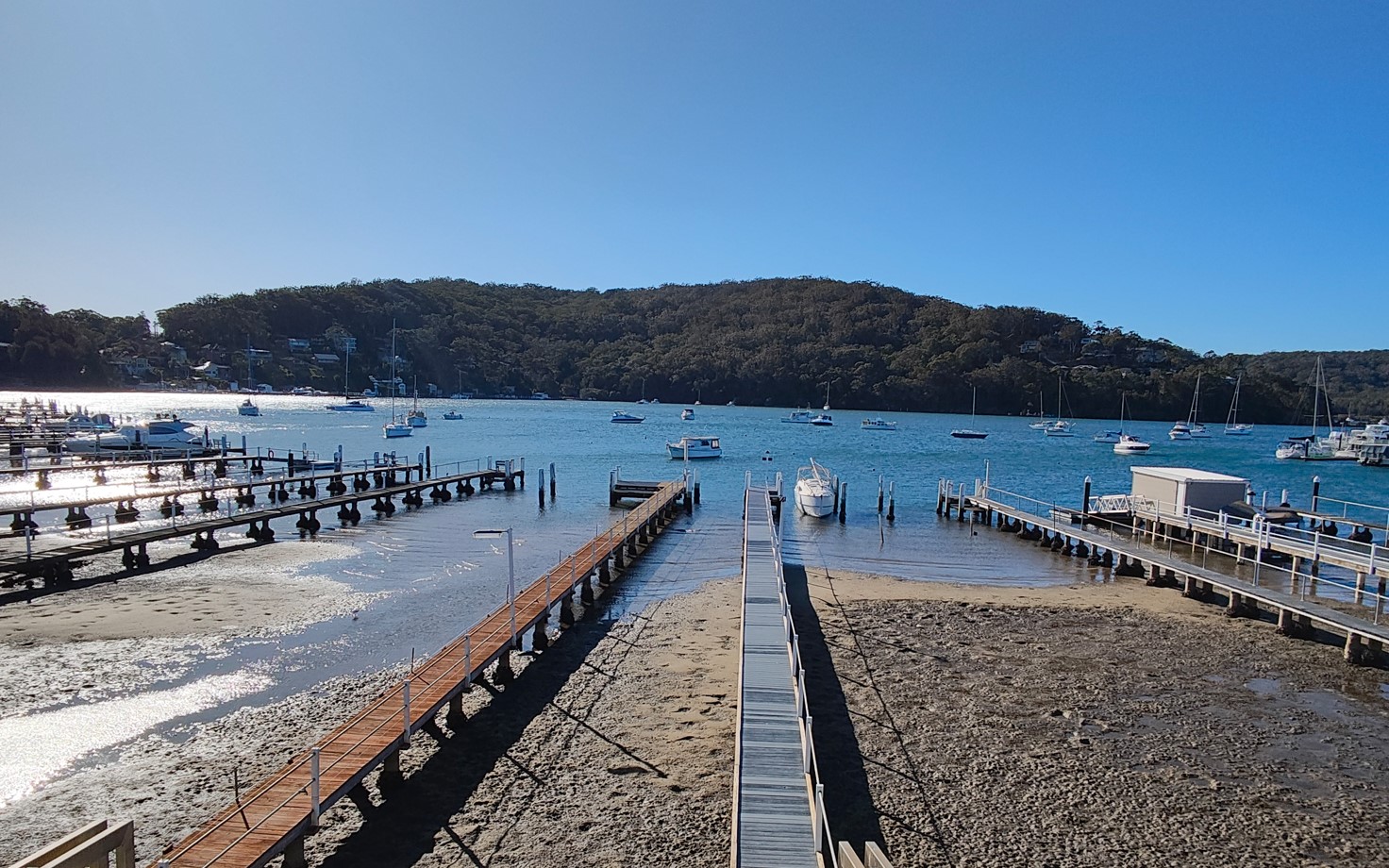
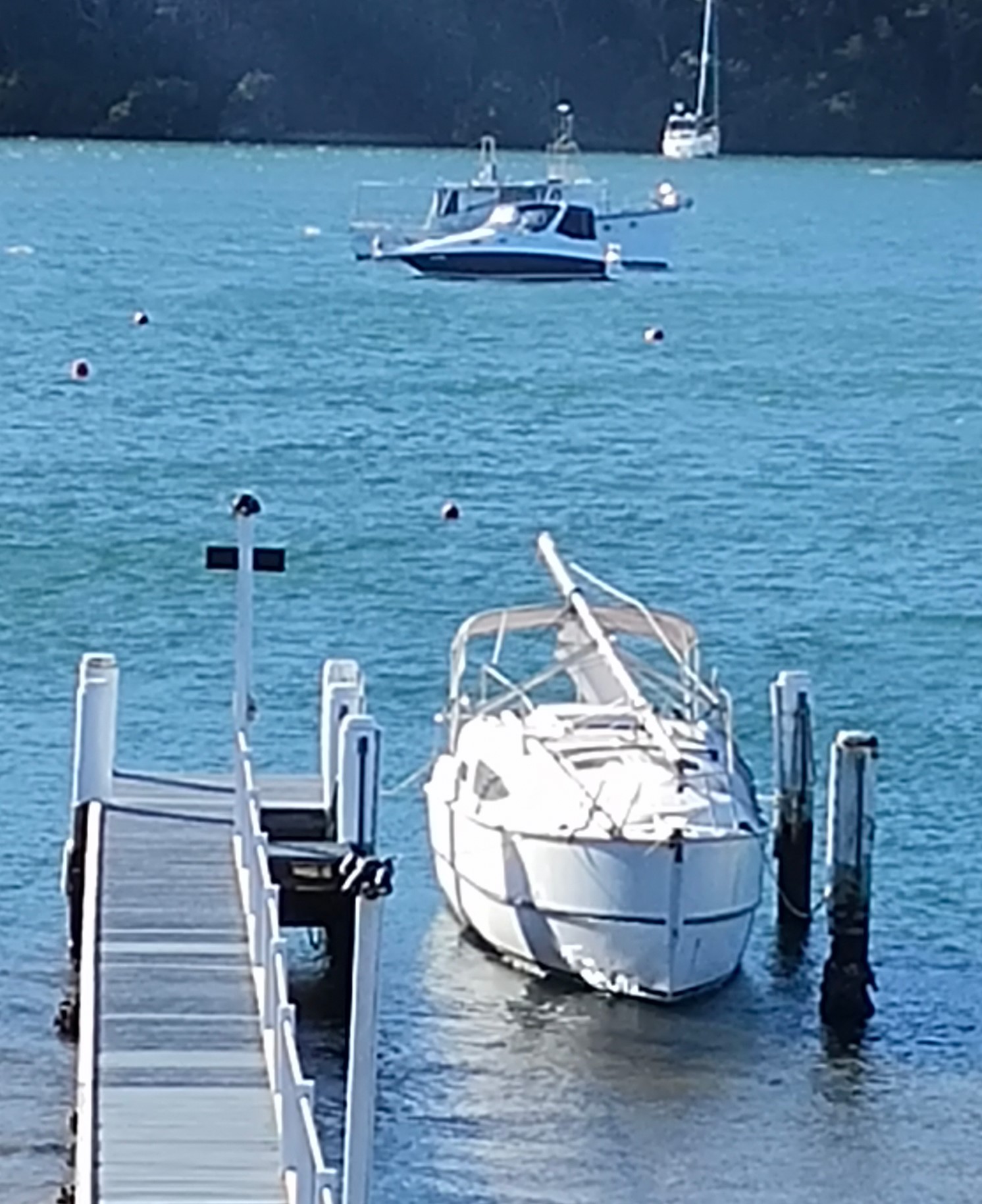



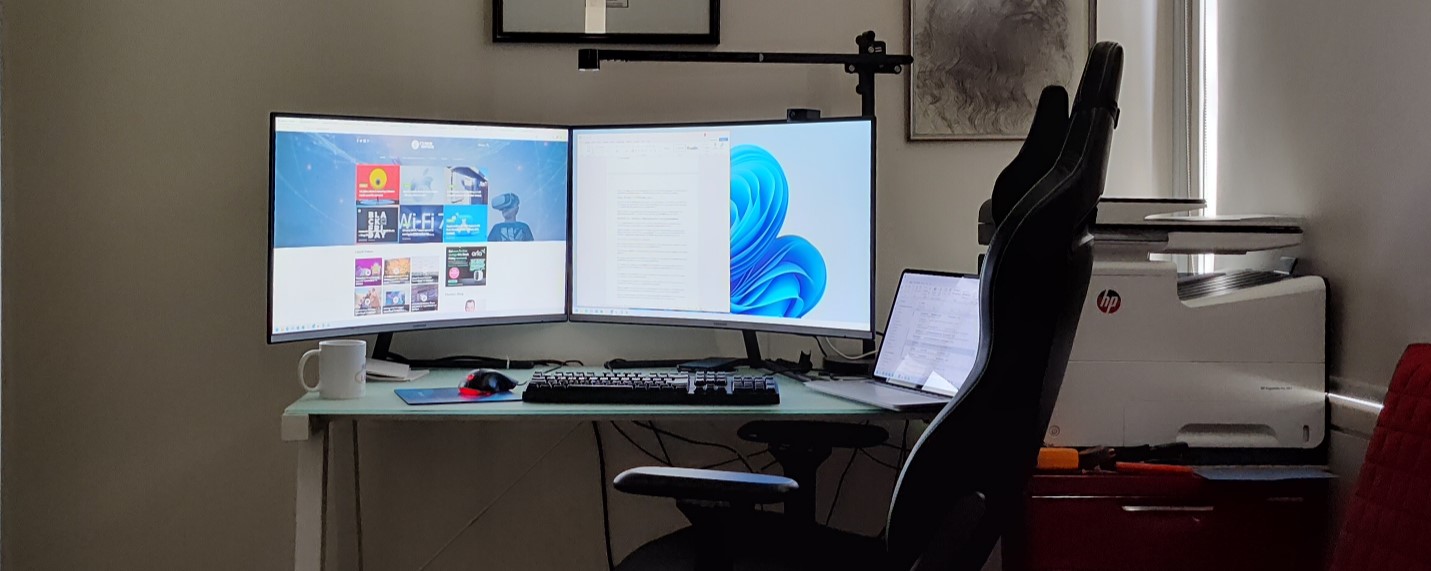

External screen as a viewfinder
Its 1:1 ratio means it crops standard 4:3 photos quite severely but has accurate colours otherwise.
Comments
- 1X Day Primary sensor: the colours are excellent with good dynamic range. Good details in the background, shadows, and highlights.
- 2X Day Primary sensor: natural colours and good detail
- 8X Day: Primary sensor: Pushing its limits with a noisy background – still pretty good
- Ultra-wide: 13MP sensor: Slightly muted colour and details. You can tell it is a different sensor from the primary.
- Macro 13MP UW sensor: excellent details and colours and not as critical about 4cm focus distance.
- Indoor office light: Excellent colours, details, and sharpness.
- Bokeh Depth: Excellent foreground colour, detail, sharpness, and bokeh background.
- Dark <40 lumens: The standard mode (not night mode) is quite decent.
- Night mode: Saturates the colour and removes much noise, blowing out the screen detail.
- Selfie: The 32MP (bins to 8MP) has natural skin tones, good detail, and a range of filters to enhance any image.
- Video 4K@30fps with OIS and EIS (we are not video experts):
- Primary sensor: You can shoot at 4K@30fps, and the day/office light results are very good.
- Ultrawide sensor: You can shoot 4K@30fps without OIS and 1080p@60/30fps with EIS.
- Selfie: 4K@30 but 1080p@60fps with EIS.
Remember that you buy this as a Flip – not a camera phone.
CyberShack’s view – Motorola Razr 40 Ultra 2023 got it (mostly) right.
Let’s start with the premise that you want a flip phone. The choices are Samsung Flip4 (Flip5 coming) and OPPO Find N2.
It eats the Samsung for breakfast. But we don’t know what is coming!
It has a slight edge over the OPPO with the Qualcomm SD8+ Gen 1 processor and a slightly bigger external screen (3.6” versus 3.26”). But at the same $1499 price, this is a hands-down winner. Mind you, I would be happy with either, especially if OPPO dropped its price by a couple hundred dollars.
It gets our buy recommendation.
Motorola Razr 40 Ultra ratings- 91/100
- Features: 90 – Apart from the omission of USB-C 3.1 (I know I am a broken record, but it is important to some), it has everything you need from a flip.
- Value: 90 – it is comparable to other Flips and offers better features.
- Performance: 90 – Yes, it throttles but remember, a Flip is not a gamer or heavy user’s phone.
- Ease of Use: 90 – 2+3+4 warranty/OS/security patch and excellent My UX overlay adds useful features to pure Android.
- Design: 95 – Well designed, new hinge, no perceptible visible crease and comes with a bumper cover.
Pro
- Currently, the biggest usable external screen of any flip
- Great battery life and 30W fast charge
- Smooth, almost visibly imperceptible crease on the best screen.
- Point-and-shoot camera
- Excellent 2+3+4 warranty/OS/security
Con
- Not for gamers and power users (although it has a powerful SoC, it throttles heavily)
- USB-C 2.0 means no USB-C to HDMI audio/video streaming
- No micro-SD (no flagship has this anyway), but it has mountable, slow, external storage
- 8X Digital zoom is a little limiting
- Speaker sound could be improved
CyberShack Smartphone comparison v 1.8 (E&OE)
Motorola Razr 40 Ultra 2023
| Brand | Motorola |
| Model | Motorola Razr 40 Ultra |
| Model Number | XT2321-1 |
| Price Base | 8/256GB |
| Price base | 1499 |
| Warranty months | 24 months ACL |
| Tier | Flagship Flip |
| Website | Product page |
| From | Motorola online, JB Hi-Fi, Harvey Norman, Domayne. |
| Country of Origin | China |
| Company | Owned by Lenovo (Est 1984) – a multinational technology company with its primary operational headquarters in Beijing and Morrisville, North Carolina. It is the world’s largest PC maker. It purchased Motorola Mobility from Google in 2014. Most of Lenovo’s smartphone business is now under the Motorola brand, with grand plans to become a ‘top five’ smartphone maker. |
| More | CyberShack Motorola news and reviews |
| Test date | 1-7 July 2023 |
| Ambient temp | 10-20° |
| Release | 45108 |
| Other models not for Australia (Don’t buy) | Motorola makes models for global markets that are not for Australian Telco networks or carry an Australian warranty. |
Screen
| Internal/External stats | |
| Size | 6.9″/3.6″ |
| Type | Foldable LTPO AMOLED/Flexible AMOLED |
| Flat, Curve, 2D, 3D | Flat |
| Resolution | 2640×1080/1066×1056 |
| PPI | 413/414 |
| Ratio | 22:9/1:1 |
| Screen to Body % | 85.4/100 |
| Colours bits | 10-bit 1.07 billion colours |
| Refresh Hz, adaptive | 165/144 |
| Response 120Hz | Touch rate: 240Hz/360Hz and/ 120Hz/360Hz (game mode only) |
| Nits typical test | Not claimed, but around 1000 (Tested 980) |
| Nits max, test | 1400/1100nits claim (not tested) |
| Contrast | Infinite |
| sRGB | 100%+ |
| DCI-P3 | 120% of 1.07B colours/100% |
| Rec.2020 or other | N/A |
| Delta E (<4 is excellent) | 2.2 |
| HDR Level | Capable of HDR10+ playback scaled to screen capability |
| SDR Upscale | Not claimed, but around 1000 (Tested 980) |
| Blue Light Control | Yes |
| PWM if known | 100Hz |
| Daylight readable | Yes |
| Always on Display | Yes – Uses external screen. |
| Edge display | No |
| Accessibility | All Android 13 features |
| DRM | L1 for FHD HDR playback |
| Gaming | Not recommended for game use as it is too easy to damage the screen. |
| Screen protection | Internal pre-applied film screen protector/external is Gorilla Glass Victus. |
| Comment | Excellent 10-bit, 1.07 billion colour screen with greater subtleties in colour than Samsung Z4 Flip. It has almost eliminated the centre fold crease that is so pronounced on the Samsung Flip. |
Processor
| Brand, Model | Qualcomm SD8+ Gen 1 |
| nm | 4 |
| Cores | Octa-core (1×3.19GHz + 3 x 2.75GHz + 4 x 1.80GHz |
| Modem | X65 |
| AI TOPS | 27 |
| Geekbench 6 Single-core | 1803 |
| Geekbench 6 multi-core | 4565 |
| Like | Faster than the Razr 2022 with the same processor (1320/4217) by a big margin. |
| GPU | Adreno 730 |
| GPU Test | |
| Open CL | 6004 |
| Like | Closer to Exynos 2100 |
| Vulcan | 7012 |
| RAM, type | 8GB LPDDRX5 |
| Storage, free, type | 256GB UFS 3.1 |
| micro-SD | No |
| CPDT internal seq. Read MBps | 1160 |
| CPDT internal seq. write MBps | 570 |
| CPDT microSD read, write MBps | N/A |
| CPDT external (mountable?) MBps | 45/30 mountable but reflects the slow USB-C 2.0 480Mbps interface. |
| Comment | The USB-C 2.0 interface is a shame, as Razr 2022 had a USC 3.1 at 5Gbps. It is penny-pinching when the SoC supports much faster interface speeds. |
| Throttle test | |
| Max GIPS | 354135 |
| Average GIPS | 244353 |
| Minimum GIPS | 194065 |
| % Throttle | 43% |
| CPU Temp | 50° |
| Comment | Most SD8+ Gen 1 run hot, and the foldable format is not well suited for SoC cooling. It won’t matter to the average user, but gamers and power users (videographers) will avoid it. |
Comms
| Wi-FI Type, model | Wi-Fi 6E AXE |
| Test 2m -dBm, Mbps | 6GHz-27/2401 |
| Test 5m | 44/2161 |
| Test 10m | -54/2161 |
| BT Type | 5.3 |
| GPS single, dual | Dual <3m accuracy |
| USB type | USB-C 2.0 480Mbps – no display port audio/video data stream support |
| ALT DP, DeX, Ready For | Only over Miracast |
| NFC | Yes |
| Ultra-wideband | No |
| Sensors | |
| Accelerometer | Yes combo |
| Gyro | Yes combo |
| e-Compass | Yes |
| Barometer | |
| Gravity | |
| Pedometer | |
| Ambient light | Yes |
| Hall sensor | Yes |
| Proximity | Yes |
| Other | |
| Comment | Excellent Wi-Fi 6E speeds. It should have been USB-C 3.2 BT supports all major codecs. GPS <3m |
LTE and 5G
| SIM | Single Sim and eSim |
| Active | Both are 5G capable and active except when one is in use. |
| Ring tone single, dual | Dual ring tones – excellent |
| VoLTE | Carrier dependent |
| Wi-Fi calling | Carrier dependent |
| 4G Bands | B1/2/3/4/5/7/8/12/13/17/18/19/20/25/26/28/32/34/38/39/40/41/42/43/48/66 |
| Comment | All Australian and most world bands |
| 5G sub-6Ghz | N1/3/5/7/8/20/28/38/41/66/77/78/79 |
| Comment | All Australian 5G sub-6 and low bands |
| mmWave | |
| Test Boost Mobile, Telstra | |
| UL, DL, ms | 23.8/30.6/29ms |
| Tower 1 -dBm, fW or pW | -87/2-4pW |
| Tower 2 | -90/1-2pW |
| Tower 3 | 99/500fW to 1pW |
| Tower 4 | 107/300fW |
| Comment | It has nine antennae and excellent signal strength, although slightly below the best performers. Definite tick for the city, suburbs and regional use, but remote use may be limited. |
Battery
| mAh | 3800mAh 30W charge |
| Charger, type, supplied | 33W USB-A to USB-C 5V/3A/15W, 9V/3A/27W, 12V/2.25A/27W, 11V/3A/33W Typically charges at up to 9V/3A/27W. USB-A to USB-C 3A cable provided. |
| PD, QC level | PD 3.0 |
| Qi, wattage | 5W |
| Reverse Qi or cable | 5 hours |
| Test (60Hz or adaptive screen) | Adaptive |
| Charge % 30mins | N/A |
| Charge 0-100% | 1 hour 4 minutes |
| Charge Qi, W Using Belkin Boost Charge 15W fast wireless charge | Approx 5 hours |
| Charge 5V, 2A | N/A |
| Video loop 50%, aeroplane | 24 hours |
| PC Mark 3 battery | 14 hours 7 minutes |
| GFX Bench Manhattan battery | Would not run |
| GFX Bench T-Rex | 268.3 minutes (4.47 hours) 6717 frames |
| Drain 100-0% full load screen on | 4 hours |
| mA full load | 1500mA |
| mA Watt idle Screen on | 250-300mA |
| Estimate loss at max refresh | Tested on adaptive |
| Estimate typical use | Typical users will make it easily through a 24-hour day or more. Heavy users will need to recharge daily. |
| Comment | These are excellent results for twin screens and the flagship processor. |
Sound
| Test | DA Smart Audio and Spatial Sound enabled |
| Speakers | Top forward, up-firing and bottom down-firing stereo. |
| Tuning | DA |
| AMP | Qualcomm |
| Dolby Atmos decode | |
| Hi-Res | Up to 24-bit/96000kHz (Razr 2022 supported 192kHz) |
| 3.5mm | No |
| BT Codecs | SBC, AAC, apt X, aptX HD, aptX TWS, aptX Adaptive, LDAC, LHDCV1, LHDCV2 and LHDCV3 |
| Multipoint | Can connect to two devices |
| Dolby Atmos (DA) | Yes – auto, movie, music, voice, and games mode |
| EQ | DA |
| Mics | Three mics with noise cancelling |
| Test dB – all on EQ flat DA off | |
| Volume max | 82 |
| Media (music) | 73 |
| Ring | 80 |
| Alarm | 80 |
| Notifications | 68 |
| Earpiece | 62 |
| Hands-free | Three mics handle noise reduction well, and the volume is good. |
| BT headphones | Excellent left-right separation and DA makes quite a difference with DA content. |
Sound quality
| Deep Bass 20-40Hz | Nil |
| Middle Bass 40-100Hz | Starting at 70 with a long slow build to 250Hz |
| High Bass 100-200Hz | Building |
| Low Mid 200-400Hz | Flattening but unexplained dip at 400-500Hz |
| Mid 4000-1000Hz | Flat to 6kHz then starts to decline |
| High-Mid 1-2kHz | Flattish but choppy |
| Low Treble 2-4kHz | Flattish but choppy |
| Mid Treble 4-6kHz | Flattish but choppy |
| High Treble 6-10kHz | Steep decline to 20kHz |
| Dog Whistle 10-20kHz | Steep decline to 20kHz |
| Sound Signature type | It is mostly Bright Vocal (bass recessed, mid/treble boosted), but the unexplained dip at 500Hz and the somewhat choppy frequency response could use work. At first, we suspected Moto’s Crystal Talk AI was influencing the sound quality, but it was similar with that feature off. |
| Soundstage | Bias to the bottom speaker. Only as wide as the phone and DA settings don’t add any wider sound stage. Left and right separation is adequate. |
| Comment | I understand why the sound signature is as it is – to allow the phone to be used in different modes – landscape, portrait and L-Shaped. It is very similar to the Razr 2022 – identical, perhaps. |
Build
| Size (H X W x D) | Open: 73.95 x 170.83 x 6.99mm Closed: 73.95 x 88.42 x 15.1mm |
| Weight grams | Viva magenta 184.5 and rest 188.5g |
| Front glass | Gorilla Glass Victus (External Display) |
| Rear material | Gorilla Glass Victus except for Viva Magenta (Vegan Leather) |
| Frame | 7000 series aluminium |
| IP rating | 52 – light rain and possibly the only significant compromise for this otherwise excellent device. |
| Colours | Glacier Blue Infinite Black Viva Magenta (Vegan Leather) Pantone |
| Pen, Stylus support | No |
| In the box | |
| Charger | 33W |
| USB cable | USB-A to USB-C 3W cable |
| Buds | No |
| Bumper cover | Yes – two piece clear |
| Comment | It has a charger and clear bumper covers in the box (Samsung does not). Well made. |
OS
| Android | 13 – Almost Pure Android |
| Security patch date | May 2023 |
| UI | Personalise: Themes, Fonts, Colours, Icon shape, Display size and text, Layout, Peek display, Sounds, Dark mode, External display Gestures: Quick launch, Sidebar, Quick Capture, Fast flashlight, Three-finger screenshot, Lift to unlock, Flip for DND, Pick up to silence, Swipe to split Moto Secure: Secure folder, Network protection, Lock screen security, PIN pad scramble, Privacy dashboard, Security, Permission manager, Privacy controls Display: Peek display, Attentive display Play: Games, Dolby Atmos, Media controls, Video call effects, Live preview Razr Tips: Take a tour, What’s new in Android 13, Getting started, Shortcuts, Calls, Camera, Apps & Transitions |
| OS upgrade policy | Three upgrades |
| Security patch policy | Bi-monthly security patches for at least four years |
| Bloatware | Pure Android – all Google Apps. You can uninstall Facebook. |
| Comment | My UX 3.0 adds both a light touch and value to pure Android. |
| Security | |
| Fingerprint sensor location, type | On the power button – 100% accuracy |
| Face ID | Yes 2D only |
| Other | Lenovo ThinkShield is more for enterprise use. |
| Comment | Moto KeySafe is physically separate from the central processor running Android, Add hardware security layer ensures your most sensitive data stays safe. It isolates PINs, passwords, and cryptographic keys, storing them in a tamper-resistant environment. |
Camera – Motorola Razr 40 Ultra 2023
| Rear Primary | Primary |
| MP | 12MP (no binning) |
| Sensor | Sony IMX 563 |
| Focus | PDAF Omni Directional |
| f-stop | 1.5 |
| um | 1.4 |
| FOV° (stated, actual) | 108° |
| Stabilisation | OIS |
| Zoom | 8X digital |
| Rear 2 | Ultra-wide and Macro |
| MP | 13MP |
| Sensor | Hynix HI336 |
| Focus | AF/Fixed Macro |
| f-stop | 2.2 |
| um | 1.12 |
| FOV (stated, actual) | 108 |
| Stabilisation | No |
| Zoom | No |
| Video max | 4K@60Hz |
| Flash | Yes |
| Auto-HDR | Yes |
| Main Burst Shot, Auto Smile Capture11, Spot Colour, Smart Composition, Active Photos, Dual Capture, Live Filter, Portrait Mode, Panorama, HDR, Auto Night Vision, Pro Mode, Super Resolution, Google Lens Integration Wide & Macro Burst Shot, Auto Smile Capture11, Spot Colour, Smart Composition, Active Photo, Dual Capture (as wide), Live Filter, HDR, Night Vision (as wide), Auto Night Vision (as wide), Pro Mode, Google Lens Integration Video Main Timelapse, Spot Colour for Videos, Face Beauty for Videos, Portrait Video Wide Timelapse, Spot Colour for Videos, Face Beauty for Videos, Portrait Video | |
| QR code reader | Via Google Lens |
| Night mode | AI |
Front
| Selfie | Front camera (inside) |
| MP | 32MP bins to 8MP |
| Sensor | OV32C40 |
| Focus | Fixed |
| f-stop | 2.4 |
| um | 0.7 bins to 1.4 |
| FOV (stated, actual) | |
| Stabilisation | No |
| Flash | Basic screen fill |
| Zoom | No |
| Video max | 4K@30fps |
| Features | Burst Shot, Gesture Selfie, Auto Smile Capture11, Selfie Animation, Spot Colour, Active Photo, Dual Capture, Live Filter, Face Beauty, Portrait Mode Beauty, HDR, Auto Night Vision, Portrait Night Vision, Photo Booth Video Spot Colour, Dual Capture, Hyperlapse, Face Beauty for Videos, Portrait Video |
Camera Comments
| Comment | This is a point-and-shoot camera that will produce decent daylight and low-light shots. It won’t win awards and is not a flagship camera. My only issue is that the 8X digital zoom is quite limiting. 1X Day Primary sensor: the colours are excellent with good dynamic range. Good details in the background, shadows, and highlights. 2X Day Primary sensor: natural colours and good detail 8X Day: Primary sensor: Pushing its limits with a noisy background – still pretty good Ultra-wide: 13MP sensor: Slightly muted colour and details. You can tell it is a different sensor from the primary. Macro 13MP UW sensor: excellent details and colours and not as critical about 4cm focus distance. Indoor office light: Excellent colours, details, and sharpness. Bokeh Depth: Excellent foreground colour, detail, sharpness, and bokeh background. Dark <40 lumens: The standard mode (not night mode) is quite decent. Night mode: Saturates the colour and removes much noise, blowing out the screen detail. Selfie: The 32MP (bins to 8MP) has natural skin tones, good detail, and a range of filters to enhance any image. Video 4K@60 with OIS, 4K@30fps with OIS and EIS (we are not video experts): Primary sensor: You can shoot at 4K@60fps, and the day/office light results are very good Ultrawide sensor: You can shoot 4K@30fps without OIS and 1080p@60/30fps with EIS. Selfie: 4K@30 but 1080p@60fps with EIS. Remember that you buy this as a Flip – not a camera phone. |
Ratings
| Features | 90 |
| Apart from the omission of USB-C 3.1 (I know I am a broken record, but it is important to some), it has everything you need from a flip. | |
| Value | 90 |
| It is comparable to other Flips and offers better features. | |
| Performance | 90 |
| Yes, it throttles but remember, a Flip is not a gamer or heavy user’s phone. | |
| Ease of Use | 90 |
| 2+3+4 warranty/OS/security patch and excellent My UX overlay adds useful features to pure Android. | |
| Design | 95 |
| – Well designed, new hinge, no perceptible visible crease and comes with a bumper cover. | |
| Rating out of 10 | 91 |
| Final comment | Currently the hands-down flipping winner. |
Motorola Razr 40 Ultra
Brought to you by CyberShack.com.au



